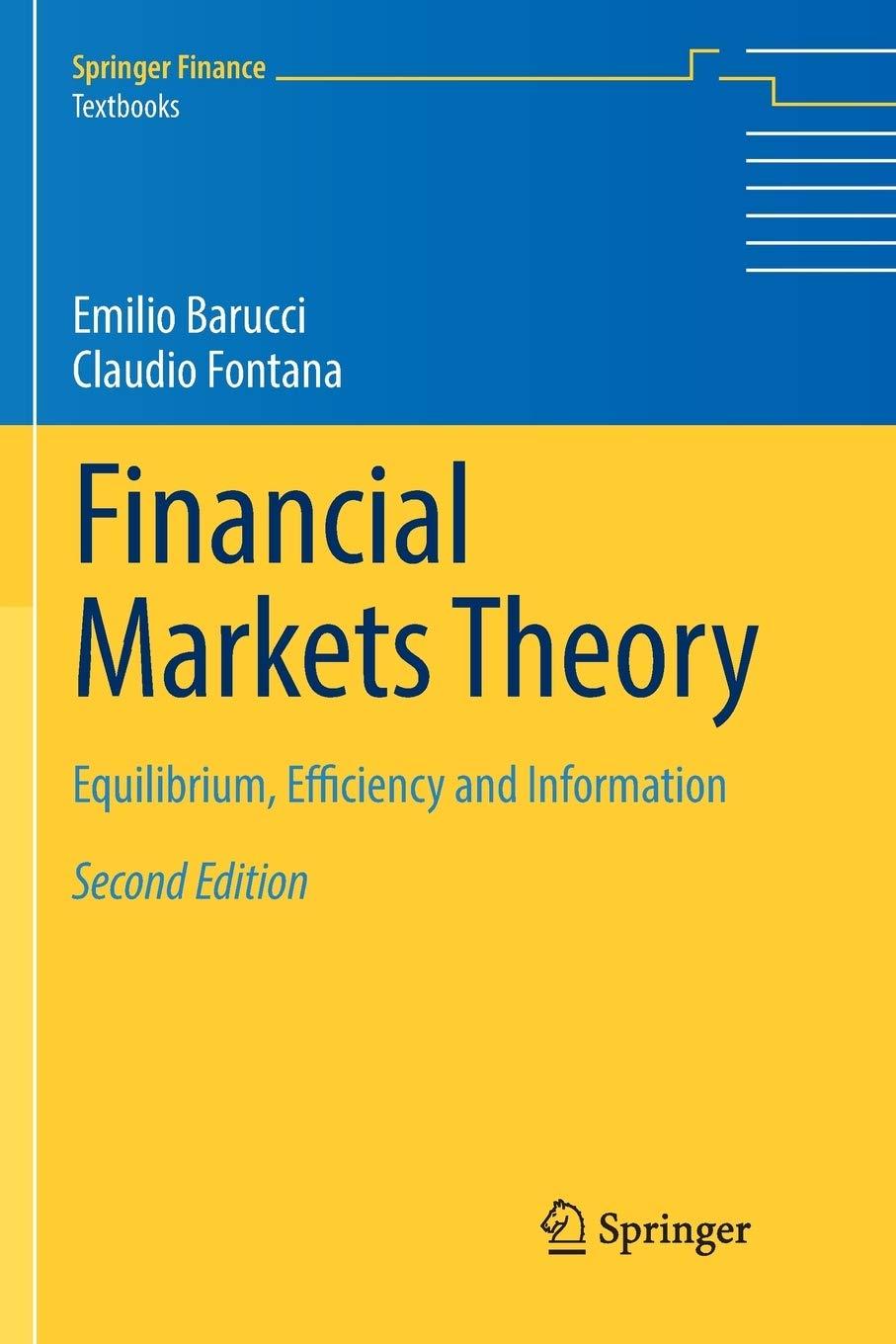Consider an economy with two agents: an informed agent and an uninformed agent. The preferences of both
Question:
Consider an economy with two agents: an informed agent and an uninformed agent. The preferences of both agents are characterized by negative exponential utility functions with a common risk aversion parameter \(a\). The possible states of the world are partitioned into two events \(\Omega_{1}\) and \(\Omega_{2}\), with \(\mathbb{P}\left(\Omega_{1}\right)=\mathbb{P}\left(\Omega_{2}\right)=1 / 2\). In the economy, there is a single asset, which delivers at date \(t=1\) a random dividend \(\tilde{d}\). Moreover, agents can trade in \(t=0\) a future contract delivering one unit of the asset in \(t=1\). The price of the future contract at \(t=0\) is denoted by \(q\) and the supply of the future contract is null. Conditionally on \(\Omega_{1}\), the dividend \(\tilde{d}\) at \(t=1\) is normally distributed with mean \(\mu_{1}\) and variance \(\sigma^{2}\) while, conditionally on \(\Omega_{2}\), it is normally distributed with mean \(\mu_{2}\) and variance \(\sigma^{2}\), where \(\mu_{1} eq \mu_{2}\). The first agent is assumed to be informed, meaning that he observes a signal \(\tilde{y}\) taking the value 1 if \(\omega \in \Omega_{1}\) and the value 2 if \(\omega \in \Omega_{2}\). The second agent receives no information (uninformed agent). The uninformed agent receives an exogenous income at date \(t=1\), defined in terms of units of the asset. More specifically, conditionally on \(\Omega_{i}\), the uninformed agent receives \(k_{i} \geq 0\) units of the asset, for \(i=1,2\). In this economy, an equilibrium price functional for the forward contract is represented by a functional \(q^{*}=\phi^{*}:\{1,2\} \rightarrow \mathbb{R}\), which maps the realization of the signal \(\tilde{y}\) into a price at \(t=0\) for the forward contract. The equilibrium price functional is fully revealing if \(\phi^{*}(1) eq \phi^{*}(2)\).
Show that, if \(a=1, \mu_{1}=4, \mu_{2}=5, k_{1}=2, k_{2}=4\) and \(\sigma^{2}=1\), then there does not exist a fully revealing Green-Lucas equilibrium.
Step by Step Answer:

Financial Markets Theory Equilibrium Efficiency And Information
ISBN: 9781447174042
2nd Edition
Authors: Emilio Barucci, Claudio Fontana





